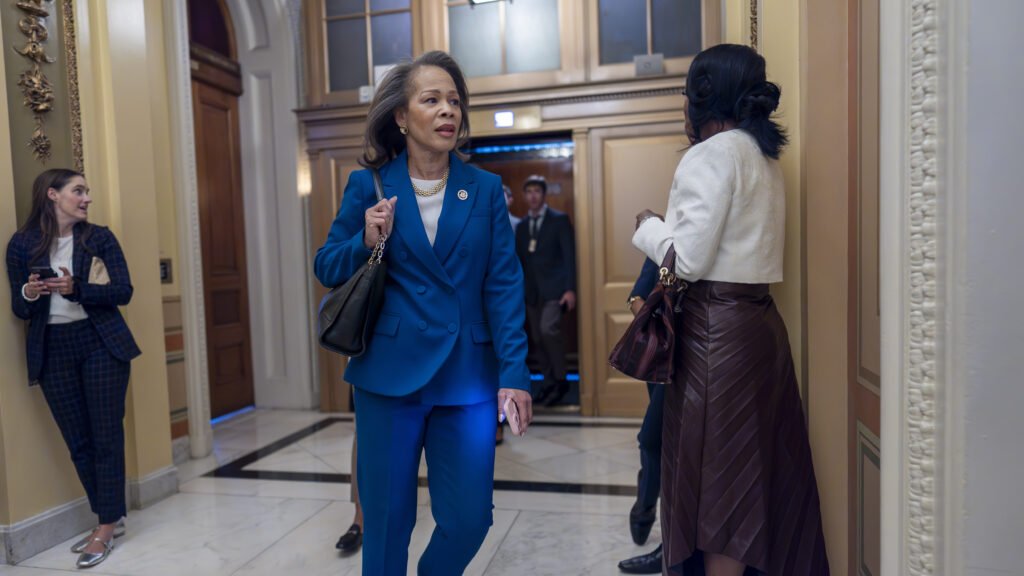Senator Lisa Blunt Rochester has taken a firm stance against Health Secretary Robert F. Kennedy Jr. in a scathing letter demanding clarification on the leadership status at the Centers for Disease Control and Prevention (CDC). Blunt Rochester’s three-page letter questions the eligibility of Matthew Buzzelli, who Kennedy claimed is the acting director of the CDC, under the federal Vacancies Act.
Blunt Rochester, a Democratic senator from Delaware, raised concerns about Buzzelli’s qualifications and legal eligibility to hold the position of acting CDC director. She emphasized the critical role of the CDC in safeguarding public health and expressed her worries about the absence of a director jeopardizing the health of Americans.
During a recent Senate committee hearing, Kennedy identified Buzzelli as the acting CDC director, describing him as a “public health expert.” However, Buzzelli’s background as a trial lawyer contradicts Kennedy’s characterization. The CDC’s website lists Buzzelli as the chief of staff, with no mention of his appointment as acting director.
Legal expert Anne Joseph O’Connell supported Blunt Rochester’s assertions, stating that Buzzelli does not meet the requirements outlined in the Vacancies Act to serve as the acting director. O’Connell pointed out that Debra Houry, the CDC’s deputy director for program and science, should assume the role of acting director based on the Vacancies Act guidelines.
Blunt Rochester called on Kennedy to clarify why Houry was not appointed as the acting director and to provide evidence of Buzzelli’s legal eligibility for the position. She also requested information on Buzzelli’s actions as acting director, including decisions regarding CDC recommendations.
The letter from Blunt Rochester comes amid growing concerns among Senate Democrats about transparency and accountability within the Department of Health and Human Services (HHS). Despite Kennedy’s assurances of cooperation, Democratic requests for information from HHS have reportedly gone unanswered, prompting calls for increased oversight from Republican colleagues.
As the controversy surrounding the leadership of the CDC continues to unfold, Blunt Rochester’s letter underscores the importance of upholding legal and ethical standards in the appointment of key public health officials. The public awaits Kennedy’s response to the senator’s demands for clarity and transparency regarding the CDC’s leadership.
When Kennedy appeared before congressional committees, he faced tough questions about the repercussions of staffing and funding cuts within the federal health agencies. Despite widespread reports, including some from within his own agency, Kennedy made claims that were at odds with the information available.
During the hearings, Kennedy was pressed for details on the reorganization efforts within the Department of Health and Human Services (HHS). However, he often dodged questions by stating that he had been advised by attorneys not to discuss the matter or promising to look into the issues and provide answers at a later time.
Kennedy expressed frustration with the size and redundancies in HHS, stating that without proper reorganization, the agency would continue to struggle. He acknowledged that mistakes may be made during the restructuring process but emphasized the importance of streamlining operations for more effective governance.
Despite the challenges and criticisms faced by Kennedy during the hearings, he remained committed to the task of reorganizing HHS. He recognized the need for change and was determined to address the issues within the agency to improve efficiency and effectiveness.
In conclusion, Kennedy’s appearance before congressional committees shed light on the complexities of reorganizing federal health agencies. While facing scrutiny and skepticism, Kennedy stood by his efforts to make necessary changes and acknowledged the challenges ahead. His commitment to improving the governance of HHS was evident, despite the obstacles and criticisms he faced during the hearings.


